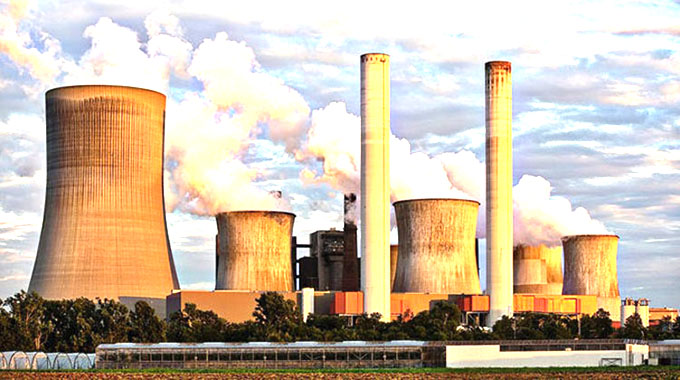EDITORIAL COMMENT: Zim’s open investment policy bringing in power stations

Renewable energy is the future for all countries, especially those who have to build up their energy sources to maintain high rates of the sort of economic growth that give a decent future to their people, and that describes Zimbabwe.
All power stations require investment, a lot of investment, and renewable sources require more investment although have zero fuel costs and so very low operating costs, so over a set number of years the two different types of station balance out on costs. But that higher initial capital means that a country like Zimbabwe needs to find quality investors ready for the long haul.
At the COP27 Summit in Egypt, President Mnangagwa was explicit. Zimbabwe has a good investment policy, does not cheat investors, and renewable energy is right up there on the priority list for those wanting to invest.
We desire private investment into energy, we have the legal framework so private generators can easily strike the deals they need with Zesa to sell their output at a price that is fair to both sides, and we have a lot of general investment policies to attract all outside direct investment.
Besides the speeches and the hard selling, Zimbabwe also exhibited what was possible.
Skypower Global, a major international investor, builder and operator of solar power stations, finalised the deal with Zimbabwe at a signing ceremony in the Zimbabwe pavilion.
In one sense this was convenient. Energy and Power Development Minister Zhemu Soda was in President Mnangagwa’s team for Cop27. Skypower CEO Mr Kerr Adler was at the summit to show off his company.
But more importantly it allowed Zimbabwe to display its commitment to renewable energy; it allowed Zimbabwe to make it clear through a deal with a responsible company that it does practice its pro-investment policies and welcomes energy investment.
Some of the other potential investors will be checking up on why Skypower reckons it has a good investment deal in Zimbabwe.
Mr Adler himself is one of a rare breed, an exceptionally practical fanatic. He is fanatic about renewable energy and the role it must play, and he has converted that enthusiasm into a highly practical business, starting with his decision to set up the company in the United Arab Emirates where he could put together investors, sunshine and markets to get going.
President Mnangagwa on his specific investment drives managed to meet Mr Adler, and quickly won his interest in investing in Zimbabwe.
Our President sees one of his jobs as selling the benefits of investing in and trading with Zimbabwe, and in high practical way quickly outlines the pro-investment policies his Government has introduced and suggests a potential investor looks further.
Mr Adler, as President Mnangagwa noted, was interested, but being a practical business person also wanted to do his due diligence, that is check out that what were the announced policies were actually in place on the ground, that what was offered could be delivered.
He checked us out, and no doubt also had a quiet word with other investors who are already in Zimbabwe, and then went for the deal.
In fact the checks found that Skypower could go further, hence the promise after the first phase to transfer skills and technology to Zimbabwe. Among other things that were found was that there are technically educated people in Zimbabwe who can be trained and receive the transferred skills, and there is a sufficient technology culture that assembly or even part manufacture of some of the components of a solar station can be done viably and economically in Zimbabwe.
The President also noted that Zimbabwe is not looking for one offs. The country needs to continually expand its power generation, with estimates now being made that we will need 12 gigawatts by 2030.
Even when Hwange extension is commissioned over the next few months, our capacity will be round about 2GW.
Adding in what can be added very quickly, the Dinson Iron and Steel Company power station, the refurbishment of the old units at Hwange and the small solar stations being connected to the Zimbabwe grid, we go a little over 3GW.
What it means is that our economic growth requires new stations at regular intervals. Imports help, but our neighbours are also growing their economies and even those with surpluses will soon be running short.
The Southern African Power Pool is vital, but its main role will be helping to even out peaks and troughs during each day, and helping countries cope with a temporary surplus when a new station is commissioned, and then a temporary shortage as the next station is finished. Long term imports and exports are unlikely.
This linking of economic growth to new power stations must be the main reason why the World Bank was able to stress that Africa is the lowest risk continent for renewable energy investment.
Our present capacity is low, and our contribution to world carbon emissions is equally very low. We are mainly interested in renewable energy to build the new power stations, rather than replace the small number of coal and gas stations on the continent.
New power stations, unlike replacement power stations, generate new economic growth, so a small fraction of that new wealth can finance the power stations that need to underpin it. This is not necessarily true when you are replacing stations since these are not generating new wealth.
Renewable energy has other advantages if you are an investor, since the sums are simple. There is high initial investment but very low operating costs since there is no fuel. The river water, the sunshine and the wind are free.
This means that the bulk of the price the new electricity is sold for can be used to pay for the investment, and pumping in the numbers will give the number of years required. So for many reasons, investing in renewable energy in a fast growing developing country is low-hanging fruit if you are fortunate to be managing large investment funds.
Zimbabwe can get its share if it continues its present policies. Sanctions might scare off American and European investors, or at least some to them, but investors in other parts of the world have already shown they think Zimbabwe is a good place to invest, and each new investor who comes in makes it clear to those still thinking that perhaps the country needs a good look. These things tend to multiply.









Comments